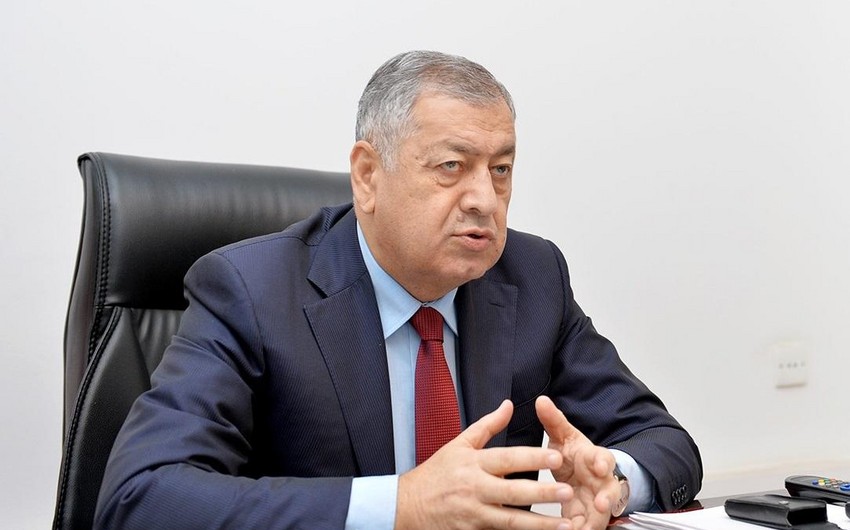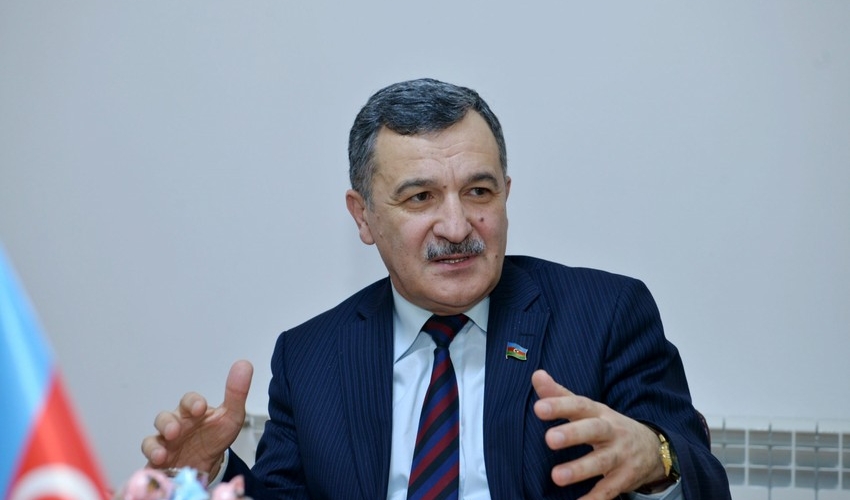According to the report of the State Statistical Committee, in the first half of 2025, the average monthly nominal wage of paid employees in Azerbaijan reached 1097.3 manats.
In the average monthly salary statistics, the capital Baku holds the first place: 1375.4 manats.
As of July 1, the average salary in the Nakhchivan Autonomous Republic economic region was 825.7 manats, in the Absheron-Khizi economic region 876.6 manats, in the Mountain Shirvan economic region 691.1 manats, in the Ganja-Dashkesan economic region 758.2 manats, in the Karabakh economic region 702.3 manats, in the Gazakh-Tovuz economic region 733.8 manats, in the Guba-Khachmaz economic region 724.3 manats, in the Lankaran-Astara economic region 685.7 manats, in the Central Aran economic region 687.2 manats, in the Mil-Mugan economic region 672.1 manats, in the Shaki-Zagatala economic region 683.4 manats, in the Eastern Zangazur economic region 787.7 manats, and in the Shirvan-Salyan economic region 781.6 manats.
In terms of the average monthly nominal wage indicator, all regions lag behind the capital. Among the regions, the economic region ranked first with an indicator of 876.6 manats (Absheron-Khizi) is also in the vicinity of the capital.
However, even in Absheron-Khizi, which is the leader among the regions, the indicator is up to 500 manats lower than in Baku.
The difference between the Mil-Mugan economic region, where the lowest average salary (672.1 manats) was recorded, and the capital is more than twice. The average monthly wage in Baku is more than 700 manats higher than the average wage in the Mil-Mugan region.
The development of regions is always a frequently discussed issue. State-level programs have been adopted on this matter, and large projects are being implemented.
What are the main reasons for salaries being so much lower in the regions than in the capital? In such a situation, is it possible to stop the flow of the workforce to the capital? Does the state's investment and infrastructure policy in the regions have the power to reduce the salary gap?

Answering the questions of Medianews.az, former first deputy prime minister and former member of the Milli Majlis Vahid Ahmadov said that if the statistical figures are correct, that is, if the difference between Baku and the regions is about twofold, it is actually not such a bad figure: “In recent years, four state programs have been adopted by the head of state concerning the economic development of the regions, and large funds have been spent on this. The funds were mainly directed towards implementing infrastructure projects, constructing roads, electricity, gas supply, water provision, and other similar directions. I would say that in regional centers these issues have been quite sufficiently resolved. But regions are not only composed of centers. We have 14 economic regions. These economic regions altogether cover more than 70 districts. There are districts consisting of about a hundred villages. There are remote and nearby villages. The main problem is in the villages.
The lack of jobs in the villages is clearly evident today. The government should prepare its own program for each economic region. Efforts must be made so that people do not migrate to the city. There are districts where some villages are practically depopulated. This can be observed to some extent in almost all economic regions. The situation in the Absheron-Khizi economic region may be different, but it is not right to evaluate the situation by looking only at this economic region. Because it is an economic region close to Baku. I even consider it as Baku; there is not such a great distance between them.
Looking at other economic regions, the complexity of the situation emerges. One of the main issues is the lack of jobs. The reason for the lack of jobs is that we have always paid more attention to larger cities, especially Baku and Sumgait. For example, economic industrial parks have been established in Sumgait where currently 12-13 thousand people work. Now, attention is also being paid to this issue in the territories liberated from occupation, and new jobs are being created. More work is being done particularly important for agriculture. Of course, this is important. The development of agriculture is directly related to ensuring food security. But there is a need for a broader approach to creating new jobs in the regions. The work done should not make us complacent. Efforts there should be accelerated. Particularly, agricultural processing enterprises are in a critical condition. In regions engaged in agriculture, processing enterprises are almost non-existent. We export mostly raw agricultural products. Therefore, attention should be increased towards processing enterprises. The government should prepare and approve a program for this. Certain investment projects should be implemented.
Secondly, structural reform must be carried out in general. The year 2025 has been declared the “Year of Constitution and Sovereignty” in our country. Therefore, we expected that there would be certain changes in the constitution, local executive authorities would be abolished, special representations similar to those appointed by the President in the liberated territories and Nakhchivan would operate in other regions as well, and broader powers would be given to them and to municipalities... Actually, local bodies should be given the authority internationally to conduct work so that they can sign contracts with provinces, cities, and companies of various foreign countries and attract investments to the regions.
Local executive authorities are in fact dependent on the state budget. They operate based on the funds approved in the state budget or those additionally allocated later by presidential orders. In reality, local executive structures are not engaged in attracting investment to the regions.
Despite spending large sums on the economic development of the regions, we have not been able to achieve sufficient job creation. Therefore, there should be programs. There should be urbanization programs so that people do not migrate from villages to the city. People in the regions must be provided with jobs so they can work and earn wages. Even notice that the head of state, considering the social situation of the people, has ensured allocation of certain funds from the state budget for unemployed persons.
In statistical figures, salaries in the regions are shown to be close to or more than 700 manats. But there are people with a monthly income of 200-300 manats, some living only on benefits received from the state. In a word, the development of regions is a quite relevant matter. True, funds allocated to the social sphere increase year by year, about 40 percent of the state budget is directed to this area. But I repeat again, the most important thing is the creation of jobs. Concrete programs should be developed and investment made for each of the 14 economic regions.”

Member of the Milli Majlis Regional Affairs Committee, deputy from the 54th Mingachevir electoral district, Aydin Mirzazade Medianews.az said in an interview that the main reason salaries are higher in the capital is that entrepreneurs usually establish high-income jobs and businesses in the capital or surrounding areas to save on transportation and other costs: “Entrepreneurs try to obtain land either in Baku or nearby areas when they want to build a high-income facility. This is a reality. From time to time, we raise these issues in the Milli Majlis. It appears that a different approach is needed in this direction. The Ministry of Economy and its relevant departments are doing a lot to create jobs in the regions. But in my opinion, a serious difference should be applied in the tax burden between the regions and the capital so that entrepreneurs are interested in building their facilities not in the capital but in distant regions. Because if they pay less tax, the products they produce will cost them less. This would encourage entrepreneurs to establish businesses in the regions. As a result, not only the entrepreneur will benefit. Jobs and wages in the regions will increase, and economic life will revive further. I think if these issues are kept under consideration, i.e., if this practice is implemented, it would be good.
Perhaps the relevant structures have their own approach and arguments on this matter. However, I believe that, at least as an experiment, a preferential tax system could be applied in some region, maybe eliminating certain taxes altogether in that region for entrepreneurs. I think this would inevitably boost the flow of capital and investment into the region.”
Nailə Qasımova,
Medianews.az

